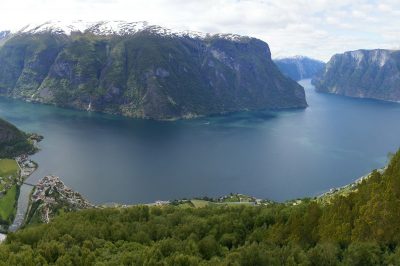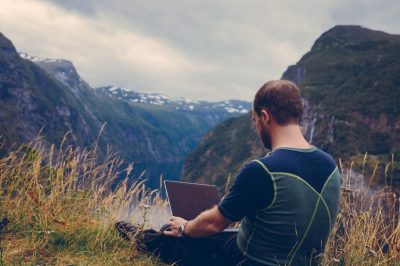Recently, I was invited to deliver lectures about change and Muslim-West relations in leading Swedish universities.
I love to travel to meet new people and learn about new cultures, and when I travel, I always remind myself of the Quranic verse:
{Say, ‘Travel throughout the earth and see how He brings life into being’} (Al-Ankabut 29:20)
So while I’m there to teach and give a good example as an Arab Muslim woman, I also consciously keep my eyes, heart and mind wide open to absorb and learn as much as I could while in foreign lands. I try to look around me for solutions for our problems that other nations might have implemented successfully so I could bring them back home to start from where they have ended. As the saying goes, there is no point reinventing the wheel.
It’s always thought-provoking to see some core Islamic principles in full application in non-Muslim countries. It makes me wonder: Where did we go wrong? Why don’t we see some of these solutions in Muslim countries where people should have stronger motives to apply them as a religious duty for society, the environment and ultimately, humanity?
No Show Off
One of the first things that caught my attention in Scandinavia is how you couldn’t tell the social level of people you met on the street. Almost everyone had the same standard of decency in their appearance. I was told that the state ensures that everyone had the minimum monthly income required to give them and their families a decent look and a decent life.
This made me think of the amazing social justice system of Umar ibn Abdel Aziz, when there were no more poor Muslims left to give charity to. Why did it phase out? How come we don’t see it in effect today?
It’s true that citizens pay high taxes, but they’re returned to them in the form of excellent services and welfare support, so they have a functioning system, infrastructure, and public services like transportation, healthcare, and education, mostly for free. I believe that is what a Muslim state should be like. Its main responsibility should be to provide a stable and decent living for all the citizens equally through wise management of the country’s resources for the benefit of all.
Moreover, although Scandinavians are very well-off, I didn’t see anyone flaunting their wealth the way we see in other countries. There seemed to be a social code that made people want to keep a low profile in public and blend in with the crowds without standing out too much. Isn’t this what great men like Umar ibn Al Khattab taught Muslims? Not to show off or brag about looks and possessions?
A Positive Model
Traffic and pollution are among our major problems in Egypt, and no one seems to be doing anything about it. Everyone in Scandinavia rides a bicycle most of the time even in extreme weather, including high officials such as ministers. Besides this being environmentally friendly, it’s also a great exercise keeping people strong and healthy, while decreasing car traffic considerably.
There are extremely high standards for car fuel, and many are now using bio-degradable fuel extracted from trash, which is systematically recycled. Energy is generated from the power of the wind without leaving behind any pollutants nor depleting natural resources. The result is a truly ‘green’ environment: clean air, sparkling clean tap water, and healthy people. Aren’t these the main privileges a Muslim should be guaranteed under a Muslim government? Protecting the environment, the resources, people’s food and health are among the most excellent lessons we learnt from the Prophet, peace be upon him, but where is the application?
Additionally, we enjoy amazing free and renewable green energy resources in our part of the world: wind and solar power. Instead, we’re depleting the oil reserves, polluting our environment, and promoting greed and easy wealth for a tiny sliver of the population at the expense of the majority who mostly live under the poverty line.
The youngest Muslim child can tell you that the first word revealed in the Quran was “Read!”, but how many of us actually apply this divine command?
I was very impressed with the system of public libraries in Scandinavia, offering all kinds of mass education to the general public for free. It made me remember the legendary libraries in Cairo, Baghdad, Damascus, Morocco and Cordoba only a few hundred years ago, where did they all go, and what happened to the culture of learning they had created? I really hope we can see a revival of our heritage of knowledge and education again soon.
It seems to me that with the onset of the Arab awakening throughout the Arab Spring, there should be a parallel awakening to our core values and the purpose of our being on earth, and sincere efforts made to turn all the religious sentiments on the street into actions to meet the One who sees what we do and will question us about it, God.
(From Discovering Islam archive)


